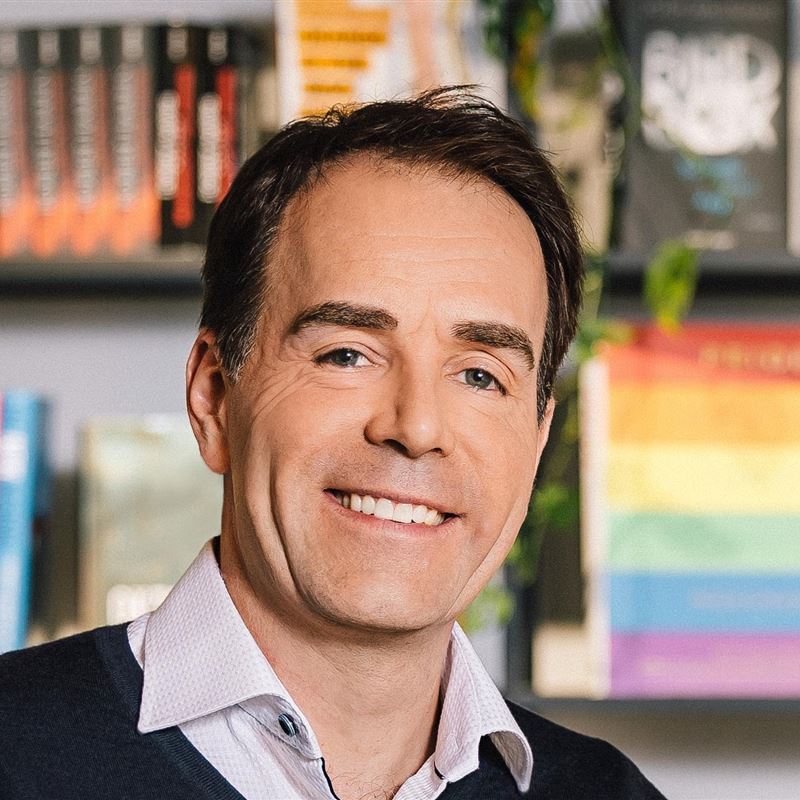Ben Harris on the DETECt Crime Series Contest: We are looking for crime series proposals that have the potential to become another great transnational show
News
DETECting the next transnational crime series hit

Serial Eyes & DETECt are looking for project proposals (no longer than 5 pages) for any kind of crime fiction. Who can submit the project proposal and what benefits are there for the applicants? Why did they choose the crime genre? We chatted with Ben Harris, the Head of Serial Eyes.
Who and what motivation stands behind the idea of creating the DETECt contest?
The DETECt Crime Series Contest is a collaboration between the DETECt project and Serial Eyes. We are seeking new, original project proposals for TV crime series from young TV writers.
To give you a little background on DETECt, that’s a pan-European research project, which brings together some eighteen universities and TV industry players across the entire continent. DETECt – which is short for “Detecting Transcultural Identity in European Popular Crime Narratives” – examines how crime series that circulate across borders contribute to the formation of a shared European cultural identity. Does this exchange of popular culture bring us closer together as a continent? And if so, how does it shape our understanding as Europeans?
At Serial Eyes we love these kinds of questions. But at some point you have to turn it over to the creators. The contest is really a practical way of motivating young writers all over Europe to come up with new ideas for the types of shows and characters they would like to be represented on television.
Who is eligible to apply for the DETECt contest?
The contest is open to any writers who are residents of the EU or EU citizens living somewhere else. We want to target professional, established writers as well as new, emerging writers. For those who are less familiar with TV writing, we have also launched a YouTube tutorial specifically for crime series writing, called the DETECt Crime Series Webinar.
Yes, the webinar. What a great idea, could you tell us more? How did you decide to choose the topics of the webinar?
In each episode we try to focus on a different aspect of how crime series work. All of this usually comes from a screenwriter’s perspective. We want to speak to both professional, experienced screenwriters and those new to the field.
We discuss story engine, arena, theme and, of course, character and look at the three major sub-genres of the crime series: the police procedural, the investigative thriller and the mobster drama. In each episode I interview various practitioners as well as DETECt scholars about these topics and then relate it all back to examples from successful crime shows.
However, the webinar is not supposed to be prescriptive. We look for patterns and conventions, but only so that writers can see where they want to innovate and push the genre into new territory.
We’ve also launched a webinar episode that discusses the various elements of the contest submission. This should also be useful for any writer who intends to submit a pitch paper to a network or producer.
Why the crime series genre?
Crime is the most popular and the most widespread fictional genre in contemporary European television. It’s a staple on many mainstream broadcast networks and is now gaining steam on pay TV and streaming platforms as well. In this way, it clearly speaks to a broad and very varied audience.
Crime also happens to be the genre that circulates most successfully across national and cultural borders. It seems that crime is especially well-suited for local stories that may find an international appeal. Stories about loss, conflict, murder and investigation represent an internationally recognizable format that translates well from one culture to another. And yet, crime is a genre that is permeable and open enough to allow for many regional variations that can speak to very local and immediate concerns. I call it a Trojan Horse in the best possible sense, which can bring local culture to a very broad and international audience.
And what are you looking for in the projects submitted for the DETECt Contest?
The field is really wide open. We are looking for crime series proposals that have the potential to become another great transnational show.
Having said that, what we don’t want is a Euro-Pudding show that feels like it’s ticking off all the boxes. Great television usually comes from those ideas that break with established patterns and still manage to engage us emotionally.
Who and based on what criteria will evaluate the projects?
The first review will be done by readers who love TV and are familiar with the crime genre. Then the members of the DETECt consortium will do a second read. The top five submissions that come out of these two rounds will be read by our jury of top industry professionals: Karen Hassan from Cattleya Productions in Italy, Steve Matthews from HBO Europe, Giacomo Poletti from Italian broadcaster Mediaset, and Eva van Leeuwen from Netflix Germany. We really tried to get a jury that reflected the contemporary European industrial landscape.
Some of the criteria we’re looking at are: Is this idea pushing the genre into new, unexpected territory? Do these characters engage us emotionally? Is there a rich, fascinating world that we’d want to explore? What themes seem relevant and pertinent to audiences across borders? What motivates the author to tell this story?
Why should the creators apply, what kind of benefits and opportunities can they gain?
The top five submissions will get read by our industry jury, who are always looking for new projects. The winner will be invited to our final DETECt conference in Rome from June 21 to 23 and have the opportunity to meet the members of the jury (we’ll take care of travel and accommodation). In addition, the winner will be awarded an annual subscription to an online marketplace for films and series in development, including a script analysis and evaluation.
Thank you for having me!
Related People

Meet MIDPOINT alumni—writers, script consultants, and development executives ready to bring stories to life!



